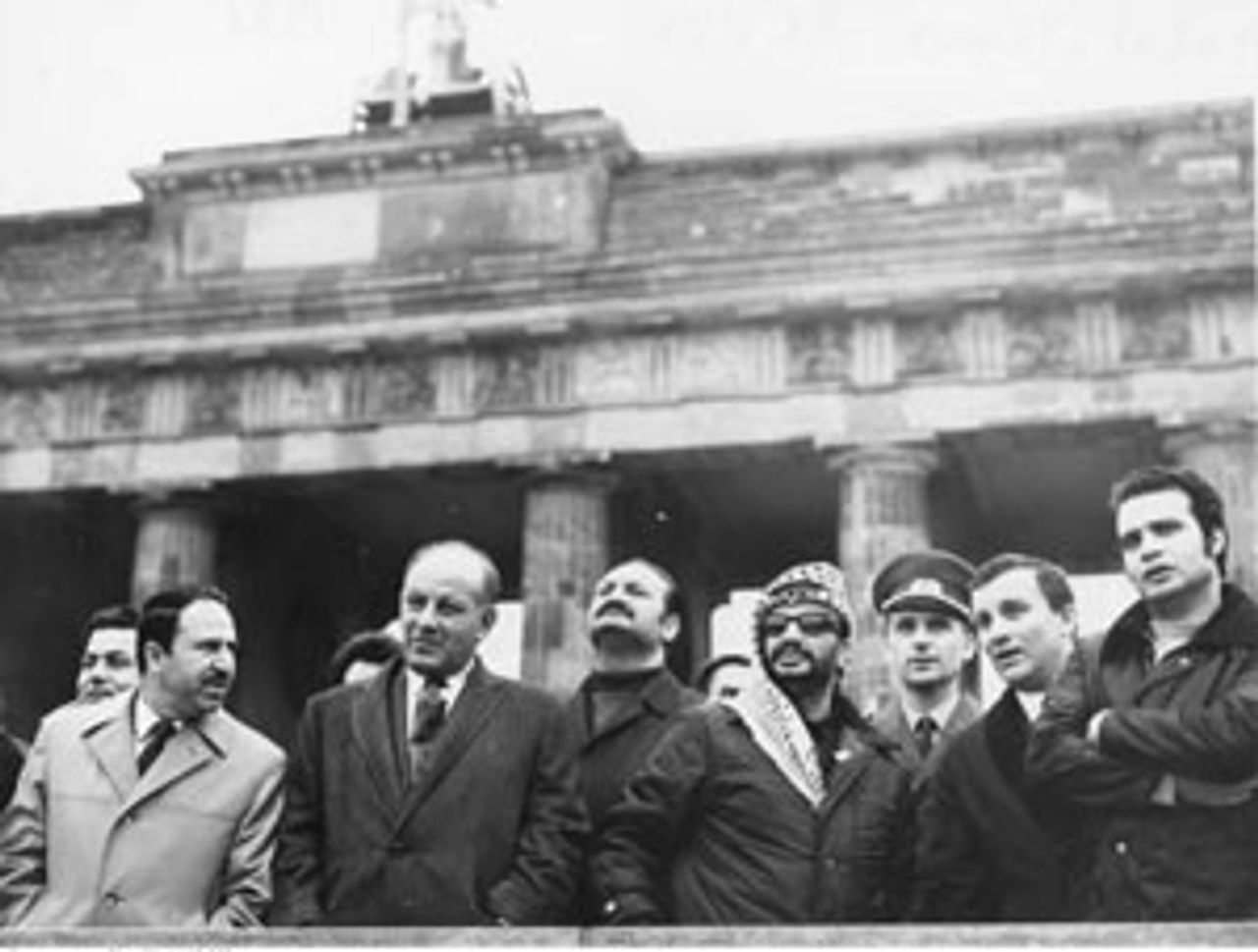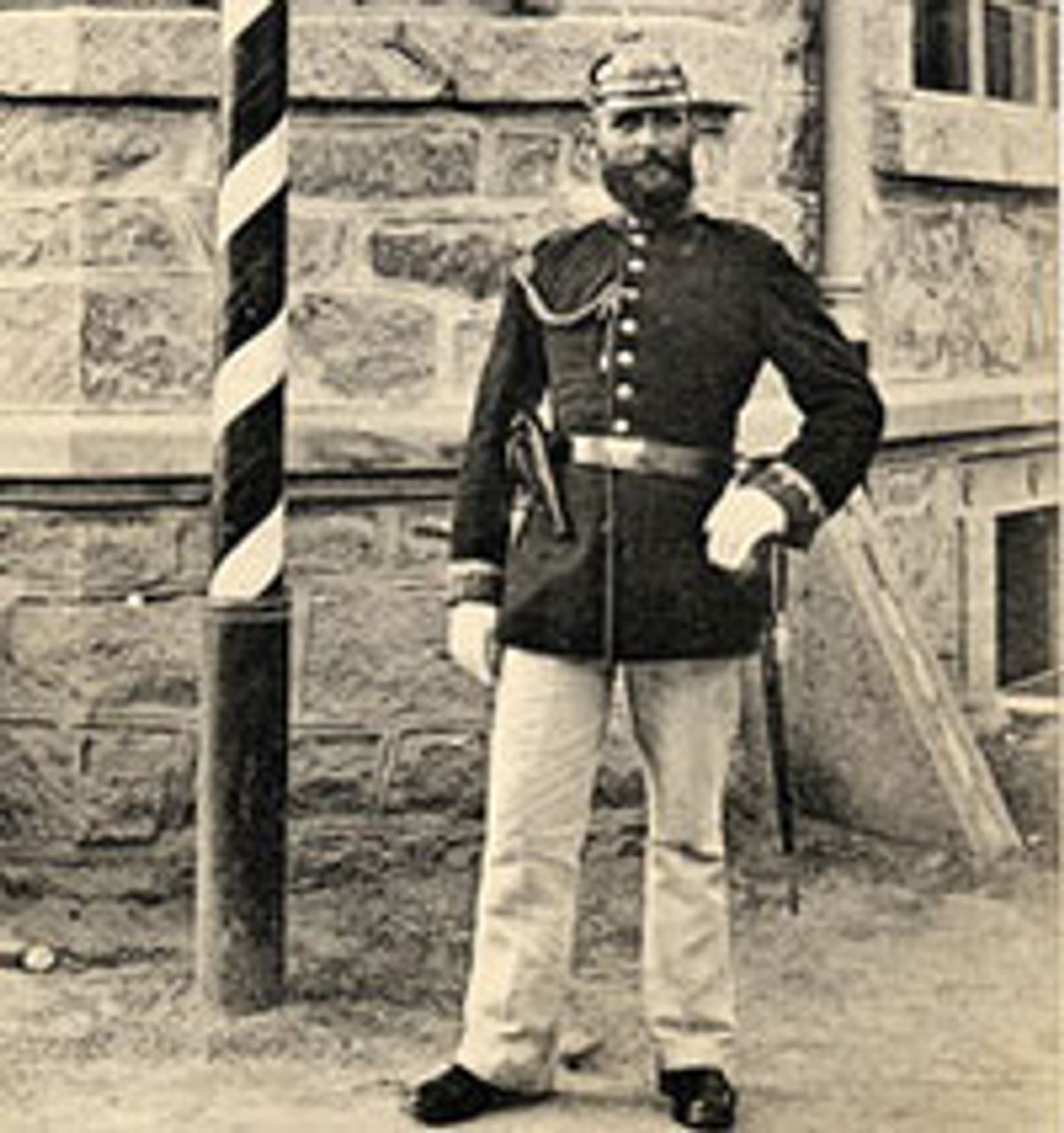This Week in History provides brief synopses of important historical events whose anniversaries fall this week.
25 Years Ago | 50 Years Ago | 75 Years Ago | 100 Years Ago
25 years ago: Israel bombs PLO headquarters in Tunis, killing 73
 Yasser Arafat and Erich Honecker in 1971
Yasser Arafat and Erich Honecker in 1971On October 1, 1985, an Israeli squadron of eight F-15 fighter jets bombed the headquarters-in-exile of the Palestine Liberation Organization (PLO) in Tunis, Tunisia, killing 73, among them 12 Tunisians. The PLO had moved its headquarters to Tunis in 1982 after the Israeli invasion of Lebanon.
The brutal attack, carried out 1,300 miles from Israel’s borders against a sovereign state, was a clear violation of international law and an act of state terrorism. It was condemned around the world, with the exception of the Reagan administration, which hailed the bombings as “a legitimate response and an expression of self-defense,” and abstained from a UN Security Council vote condemning the attack. In fact, the US provided crucial cover for Israel, not even informing the right-wing Tunisian regime of President Habib Bourguiba that the attack was coming.
Tunisian youth marched on the US embassy the next day chanting, “Reagan, Coward” and “Zionist Collaborator.” Protests among Palestinians also took place in the West Bank. PLO chairman Yasser Arafat called the bombings “not an Israeli attack but an Israeli-American ambush.”
Israel ostensibly launched the attack, dubbed “Operation Wooden Leg,” on the Tunis suburb of Hammam al-Shatt as retaliation for the killing by Palestinian militants of three Israelis on a yacht near Cyprus on September 25. In fact, it was another grisly episode in the decades-long Zionist effort to crush Palestinian resistance.
50 years ago: French intellectuals and artists censored
 Simone Signoret
Simone SignoretThe de Gaulle government on September 28 banned about 140 leading French actors, writers and academics from appearing on state-owned television and radio programs or in state-run theaters in order to muzzle their criticism of France’s colonial war in Algeria.
The ban applied to all of those who had signed a petition advocating the right to refuse military service in Algeria. The French Information Ministry also said it was preparing a law that would ban all state funding from any film production whose personnel had signed the manifesto. Also approved was a decree allowing for suspension and pay cuts to government workers who favored “refusal of military service or desertion.”
Among those affected by the ban were the actresses Simone Signoret and Daniele Delorme, writers Francoise Sagan and Simone de Beauvoir, and the philosopher Jean-Paul Sartre.
During the week, offices of left-wing newspapers were sacked by police, including Espirit, Verite et Liberte, and Sartre’s Les Temps Modernes. Police seized the upcoming edition of the latter, which was to include a major article on French torture in the Algerian war.
75 years ago: Italy invades Ethiopia
 Mussolini
MussoliniIn the early morning hours of October 3, 1935, Italian troops invaded Ethiopia, launching the Second Italo-Abyssinian War. The invasion was led by General Emilio De Bono, who had drawn up plans for an assault on Ethiopia as early as 1932 on the orders of Italian Premier Benito Mussolini.
Ethiopia was at the time one of the few African countries not colonized by the European powers. It shared borders with territories claimed by Italy—Eritrea and Italian Somaliland—and Mussolini was eager to unite his colonies through military conquest.
Italy had been building up its military presence along Ethiopia’s border throughout 1935, mobilizing tens of thousands of troops, artillery and air power. This escalation against the independent African nation, whose own military was equipped with outdated weaponry, was carried out with the tacit approval of France and Britain, which sought to gain Mussolini’s support against the threat posed by Adolf Hitler in Germany.
On the eve of the invasion, Mussolini delivered a speech filled with nationalist demagogy before a crowd of his Fascist Black Shirts gathered at the Palazzo Venezia. “Italy! Italy!” cried the dictator, “Entirely and universally Fascist! The Italy of the Black Shirt revolution, rise to your feet, let the cry of your determination rise to the skies and reach our soldiers in East Africa. Let it be a comfort to those who are about to fight. Let it be an encouragement to our friends, and a warning to our enemies.”
100 years ago: Massive clashes between workers and police in Berlin
 German gendarme
German gendarmeOn September 28, 1910, a force of 600 police—100 of them on horseback—invaded the district of Moabit in Berlin to break up a demonstration involving tens thousands of workers, the third consecutive day of clashes in the German capital. There were scores of arrests and injuries. The German army was held in reserve nearby, “but the authorities fear to summon them… lest the intervention cause upheavals in other cities,” reported the Evening Post.
The demonstrations were held against the threat of a lockout by the metal producers’ association against the metal workers, about 420,000 in all. The German industrialists declared the lockout would take place if striking shipbuilding workers did not return to work by October 8.
The demonstration began about 9 p.m. in violation of a police curfew, and Moabit soon “present[ed] the aspect of a besieged city” and a “revolution in miniature,” according to media accounts. The police charged the demonstrators with swords and revolvers, and were under orders “to exercise severe repressive measures and to use the sharp edges of their swords instead of the flat.”
Men and women hurled bottles, bricks and coal at the police from windows. The police responded with revolver fire. Commissioner Van Jagow, who drove through the district at about 10 p.m. in an automobile, was met with a barrage of epithets and household objects, including flower pots. Workers everywhere sang the Marseillaise.
Thousands of workers from other districts attempted to come to the aid of Moabit, but police squadrons blocked off streets. Three English and one US newspaperman were among those sabred in the police onslaught.
